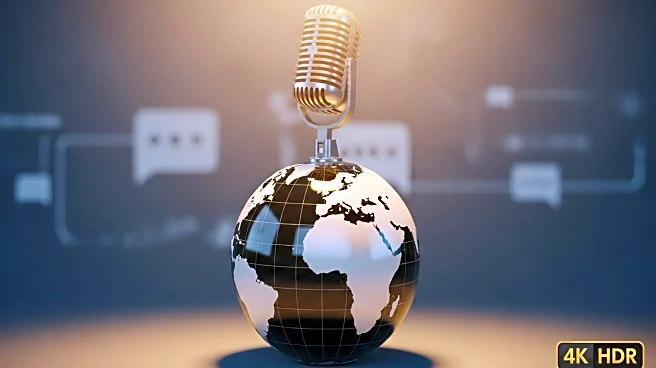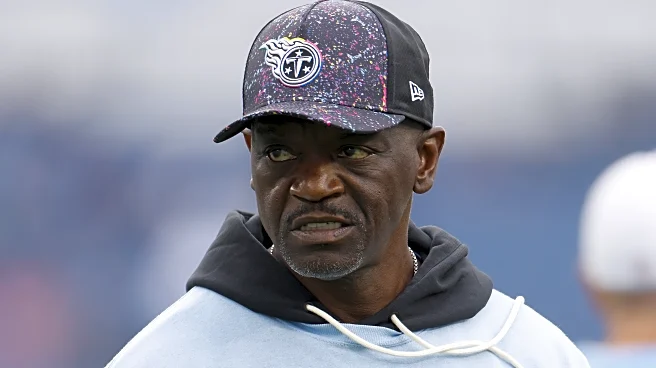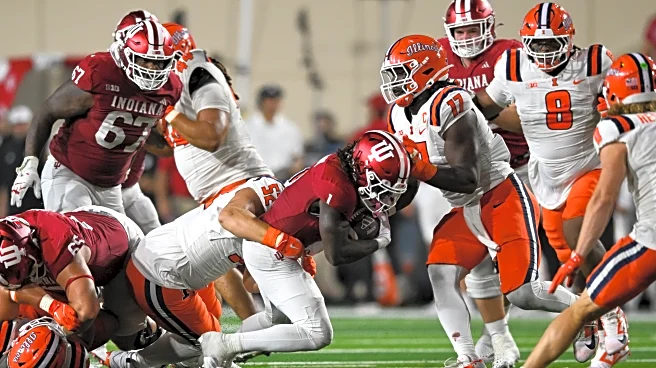What's Happening?
The BBC World Service is facing concerns over its independence as senior BBC figures push for increased funding from Britain's defense budget. Traditionally funded by the Foreign Office, the World Service is seen as playing a critical role in countering misinformation from countries like China and Russia. However, Liliane Landor, former controller of the World Service, has raised concerns about the potential subordination of journalism to government defense aims. She emphasized the importance of maintaining journalistic independence and holding power to account. The push for increased funding comes amid international tensions and follows the Trump administration's decision to defund Voice of America, the U.S.'s overseas broadcaster.
Why It's Important?
The potential shift in funding sources for the BBC World Service raises questions about the independence of its journalism. If the service becomes reliant on defense funding, there is a risk that its editorial decisions could be influenced by government priorities, undermining its role as an independent broadcaster. This situation highlights the broader issue of media independence in the face of government influence, particularly in the context of national security. The World Service's ability to counter misinformation and promote western values is crucial, but it must do so without compromising its journalistic integrity.
What's Next?
The BBC is expected to continue discussions with the government regarding funding sources, with a focus on ensuring safeguards for editorial independence. The outcome of these discussions could have significant implications for the World Service's operations and its ability to maintain its role as an independent broadcaster. As international tensions continue, the demand for reliable and independent news sources is likely to increase, putting pressure on the BBC to navigate funding challenges while preserving its journalistic principles.
Beyond the Headlines
The ethical dimension of this funding push involves the balance between national security interests and journalistic independence. The cultural implications include the role of media in shaping public perception and the importance of maintaining trust in news organizations. Long-term shifts could involve changes in how media organizations are funded and the potential for increased government influence over editorial decisions.










